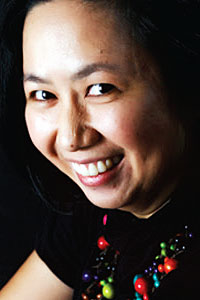There's no doubt that the world has completely evolved into a dynamic and hideous platform of consumerism.
Yet, one particular lifestyle trend that is growing fast and shedding new light among concerned onlookers of the materialistic doctrine is, ironically, minimalism.
For me, minimalism is a promising fight against life's complexity and a humble rescuer of human dignity.
Not to be confused with the lexicon widely used in the circles of designers and hipsters, minimalism, in this case, is never about visual styles or artistic description.
As coined by hard-core minimalist movements in the West, the term minimalism basically refers to a cautious lifestyle against excess.
Minimalists are people who deliberately possess less, consume less and live the simplest life.
The philosophy is said to be inspired by the American naturalist, photographer and Pulitzer Prize-winning writer Edwin Way Teale. In 1899, he wrote: "Reduce the complexity of life by eliminating the needless wants of life, and the labours of life reduce themselves."
World-renown celebrities who early adopted a minimalistic lifestyle include Steve Jobs. His house was reported to have almost no furniture or accessories, only a picture of Einstein, a lamp, a chair and a bed.
According to former Apple CEO John Sculley who had visited Jobs house, Jobs never believed in living a cluttered lifestyle.
You might argue that only the rich and powerful -- or austere monks -- would be able to elegantly achieve such a radical and seemingly undoable lifestyle. But if you examine this closely, you will discover that minimalism is the easiest and most economical lifestyle to choose.
A week ago, the BBC website ran a story on various people in Japan who live a life of conscious minimalism.
One man, a 36-year-old book editor, is reported to have owned over a two-year period, just three shirts, four pairs of trousers, four pairs of socks and a diminutive collection of other necessities.
The man, as well as his minimalist fellows, including the organising consultant and internationally known author Marie Kondo, enjoys a happy, more efficient and better organised daily life.
In Japan, the practice of minimalism is not, nonetheless, limited to the lessening of possessions. Presumably thanks to the country's Zen-style Buddhism, the expression of sound and other physical actions are to be done with discretion. They make less noise, avoid emotional exaggeration and unhurriedly appreciate time.
Personally, the deeper I looked into the minimalism concept (still not deep enough though), the more I am confident that the humble, anti-materialism approach is the ultimate guideline to living and saving the planet.
It always disturbs me to witness our natural resources being overused and abused by commercialism and a self-pleasing generation.
Excessive shopping, leisure travelling and consumption of energy and food, all serving mostly worthless narcissistic purposes, have damaged the Earth, air, water, people, serenity and cultural grace.
Hence it should be stopped. And I recommend we begin with ourselves by abstaining from extra indulgences and appreciating more what we already have.
My experience as a 46-year-old, meanwhile, has taught me there's more to life than possessions. Larger quantities doesn't necessarily mean better.
For me, more (belongings, people, desires) means increased preconditions and less freedom.
I've well realised that my decision to own two dogs has limited my family's ability to travel, as someone has to take care of our beloved mutts. Ownership of additional properties frequently solicits extra headaches.
As the mother of a pre-teen child, I see minimalist principles also benefit parenting and the appreciation of family values.
In a society in which every second materialistically counts, it's hard to teach your child to realise profound inner value if you still value assets and accessories.
When parents have less possessions to mind, less social ladder to climb and less quantitative success to concern, I believe this will help promote the development of wholesome relationships and true growth for the entire family.
The slow-paced principle of minimalism also confirms to me that multitasking is not the key to productivity, but rather an unhealthy behaviour that may forever kill your concentration and imagination.
Quicker is also not necessarily better.
Vanniya Sriangura is a senior writer and food columnist of Life.
